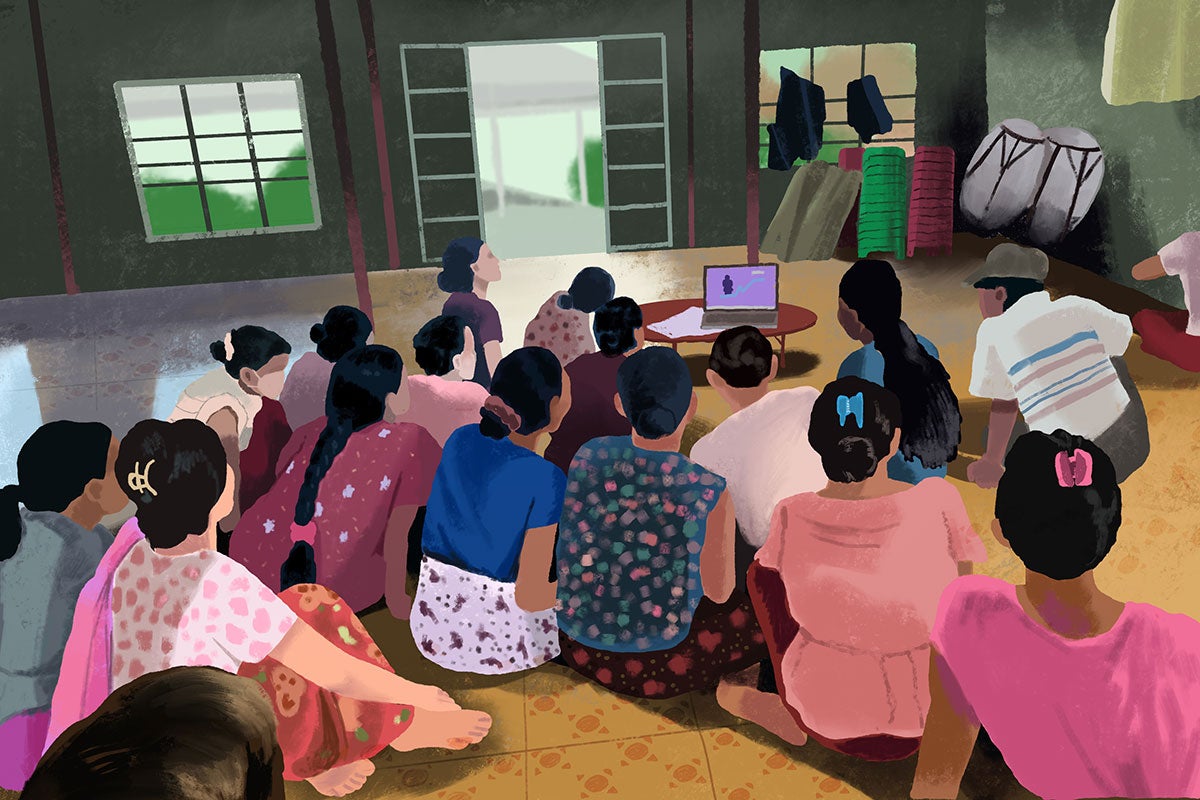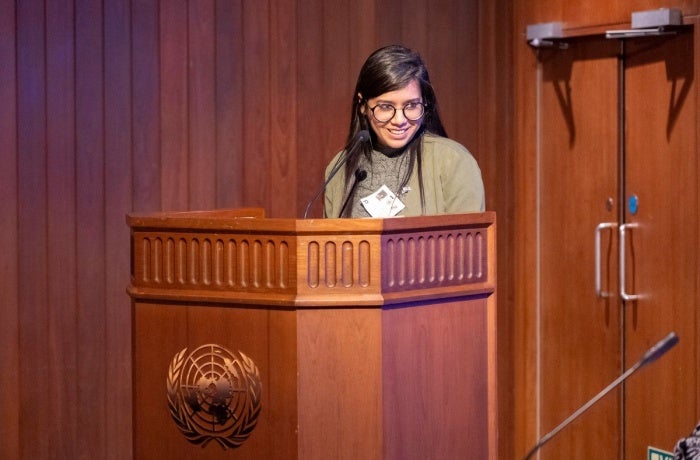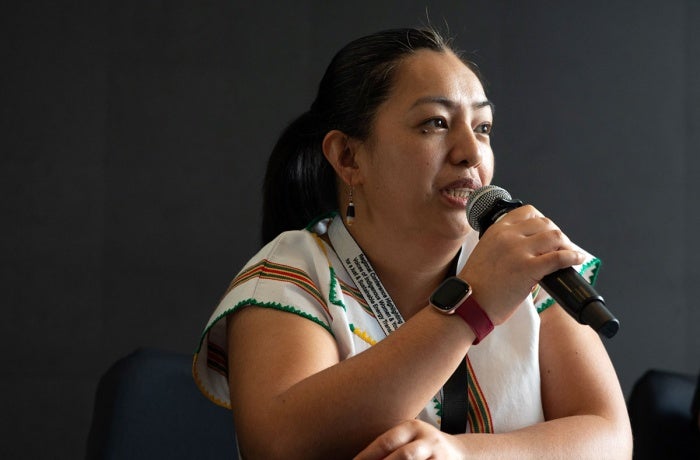‘I'm not afraid of people anymore’: How training on gender-based violence changed attitudes in a Myanmar village
Ma Shwe said she “was just a young girl” when an act of sexual violence perpetrated by a man from her village crushed her self-confidence and left her feeling terrified.
Ma Shwe, who is identified by a pseudonym to protect her identity, was raised in a small farming village in Myanmar with about 200 households. After the attack, she felt judged by her community, shamed, and outcast.
“I was afraid to live in my environment, and so I left my home and village,” she said.

She only felt safe enough to return when she found that the perpetrator had also left the village, and enough time had passed that it seemed clear he would not return. By then, Ma Shwe had a child, and she wanted to live with her family and raise her child in her home village. However, upon her return, she continued to feel judged by those around her, and as she dealt with the ongoing physical and mental health impacts of the violence, it was a daily struggle to feel safe and comfortable.
“I used to feel shy and afraid of people,” she said, “but there was a training in my village on gender-based violence and I attended. After the training I felt that I can accept being alive.”
Ma Shwe accessed that training and a range of services, including counselling sessions, with the support of a local women-led organization, one of several groups that UN Women works with across Myanmar to reach women and girls who have experienced or are at risk of experiencing gender-based violence.
A representative from that organization said that, when Ma Shwe first approached the group, “she cried openly because of the comments from some people around her and every day was a time of worry and sadness for her.”
“However, she attended the awareness sessions and accepted that it was not her fault. In addition, she was able to regain her self-confidence and acceptance of her own existence as she received timely counselling sessions,” the representative said, asking that their name and organization not be made public for security concerns.
Ma Shwe also attended training courses and awareness raising sessions that were delivered through a digital learning platform. A wide range of people in the community, including men and boys, used that platform and attended the in-person sessions, which aimed to break down harmful social norms and attitudes that perpetuate violence and discrimination against women and girls.
“After the training, I saw that the views of the people around me had changed a lot”, Ma Shwe said. “This change is important. It makes people feel equal and understand everyone has rights, so they learn to value each other.”
UN Women works with other UN agencies, including the United Nations Population Fund (UNFPA), and local partner organizations to prevent gender-based violence and offer response services across Myanmar.
From 2021 to 2023, UN Women and UNFPA reached more than 16,000 women through a joint programme on preventing and responding to gender-based violence. Of those women, 1,290 received legal advice and assistance, psychosocial support, and referrals to other services. More than 800 women-headed households received cash assistance and food, and also accessed services including mental health and psychosocial support.
As fighting in Myanmar continues to escalate and the economic, political, and humanitarian crisis worsens, civilians’ coping capacities are stretched to the limit. A new joint programme supported by the Government of France will provide additional support for UN Women and UNFPA to deliver services aimed at preventing gender-based violence in communities affected by the conflict, including livelihood support and access to emergency services.
The country’s broader crisis is perpetuating gender disparities in employment and increasing vulnerability to trafficking and gender-based violence including sexual exploitation, harassment, and intimate partner violence, which Myanmar women have said is the most common form of gender-based violence in their communities.1
Women’s organizations in Myanmar play a vital role in preventing and responding to gender-based violence by providing services at the community level, bolstering women’s empowerment, and reaching those at risk of being left behind.
While Ma Shwe continues to struggle with the impact of the violence that was perpetrated against her, she now feels more comfortable in her community. She said she has hope for the future and even dreams of one day opening her own business.
She said, “I feel like I've got my own life back, and I'm not afraid of people anymore.”
[1] Findings from focus group discussions conducted for 2023 Multi Sectoral Needs Analysis









